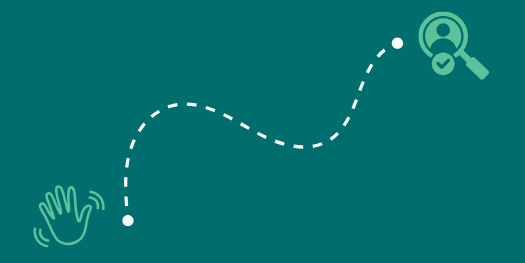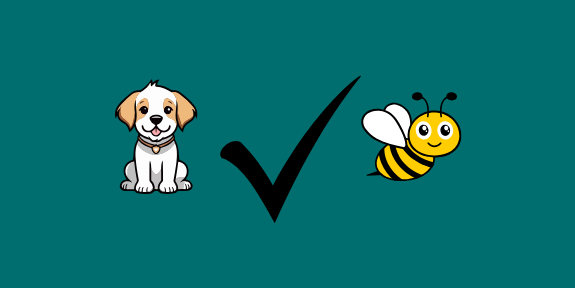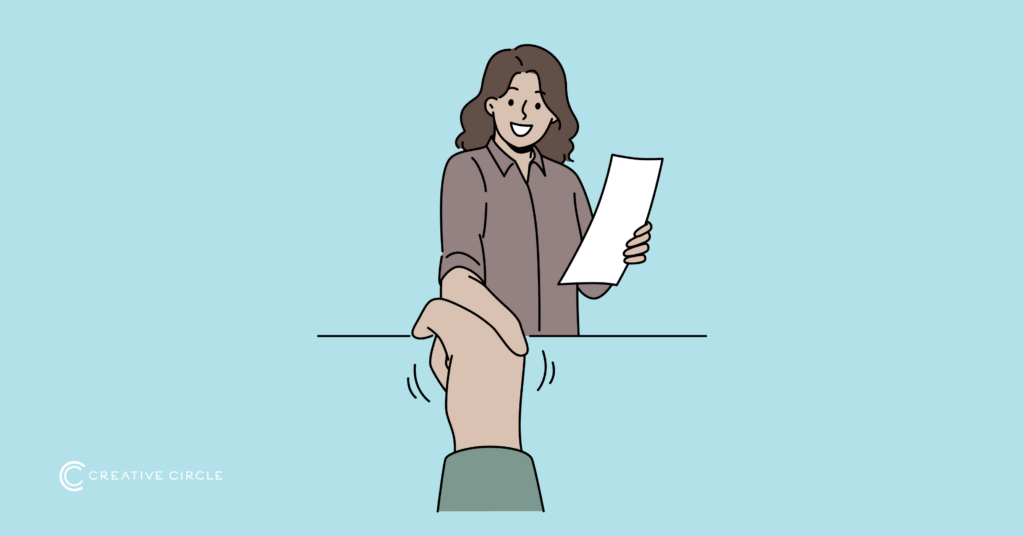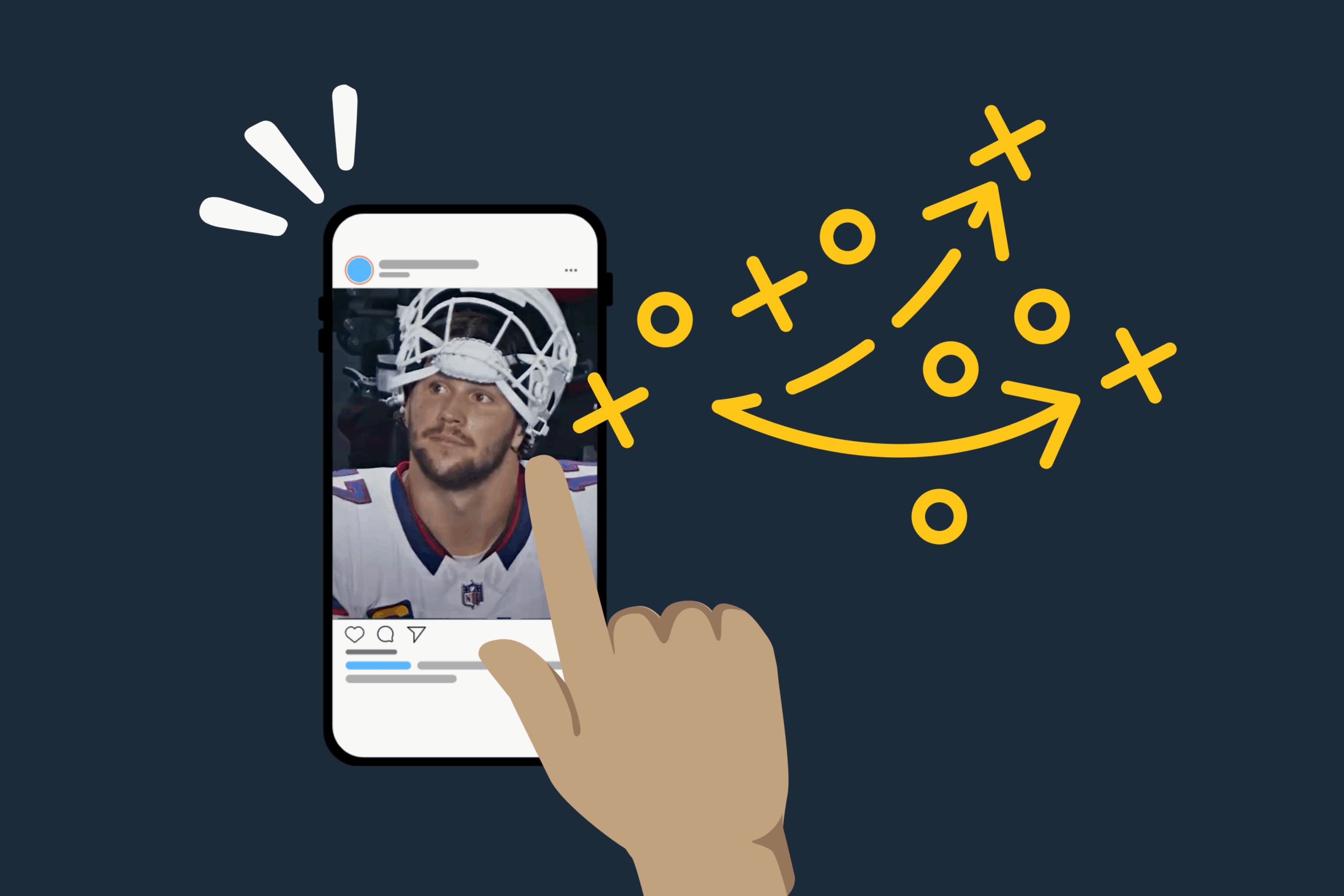Why should they hire me?
Because they need my help, and I need their money.
But I can’t say that. Not if I want the job.
So, what the heck am I supposed to say?
If your internal dialogue sounds like this from time to time, you’re in good company. 👋
I get tripped up on interview questions, too. Some questions seem like a trap, while others are just bizarrely quizzing me on my knowledge of the animal kingdom. Seriously, why?
6 dreaded interview questions
According to the nearly 3,000 votes on our recent LinkedIn poll, and the buzzing comments section, there are six common questions that trip up interviewees the most:
- Tell us about yourself!
- Why should we hire you?
- What is your greatest weakness?
- What are your salary requirements?
- Tell us about a time you failed.
- If you were an animal, what would you be?
Why hiring managers are asking
Did you know there are over 9,000 job applications per minute on the LinkedIn platform alone? And only about 8% of applicants make it to the interview scheduling stage?
That’s a lot of applicants for one job, and likely a lot of people that can do the basic day-to-day functions of that job. Skills- and competency-based questions aside, these behavioral questions can help hiring managers (in their mind at least) assess things like a candidate’s communication style, how they respond to challenges, and how they’ll fit in with the team.
Tackling the dreaded question
To better understand how to answer these behavioral questions, I leaned on two experts from our Chicago office. Creative Circle recruiters Mary Blackburn and Rose Boyer break down each interview question below — what do hiring managers really mean when they ask these questions? And how should you respond?
“Tell us about yourself.”
This is usually an icebreaker question, right at the start of your interview. It is not the time to share details of your personal life, and your response should be relatively brief. Think of it like an elevator pitch and keep it professional — the hiring manager wants to know a bit about who you are, what you do, and why you’re interested in the position you’re interviewing for.
Rose says, “Some candidates make the mistake of starting off by sharing where they live — that’s not what we’re asking.” She adds, “I’ve had candidates begin by sharing their age. We don’t need to know that either.”
Mary adds to Rose’s sentiment, “Try to avoid the year-by-year play. It’s fine to include where you started but let that be a brief bullet in your overall response. We can see previous employers and duration of employment on your resume, so it’s not necessary to spell that all out for this question.”
“Why should we hire you?”

Interviewers are looking for a specific and personalized response that showcases how you can solve their business needs; be sure to emphasize your most relevant experiences. This is an opportunity to show that you’ve researched this company, that you understand what they need, and that you can deliver.
Rose suggests explaining why you’re a great fit for the role you’re interviewing for specifically, and to refer back to some of the discussions you’ve had throughout the interview. You might say, “You mentioned earlier that time management is essential to this role — time management is one of my biggest strengths. I use a project management tool to stay on top of deadlines, prioritize, and plan my tasks and it works tremendously. It helps keep my manager in the loop on project status, too.”
Mary says, “Make yourself stand out from the crowd. What skills and experience do you have that might separate you from the other applicants?”
“What is your greatest weakness?”

If a hiring manager asks you this question, they’re probably checking to see how self-aware you are. They want you to expand on your weaknesses with a couple details on how you’re managing them. Saying that you’re a “perfectionist” isn’t going to cut it — be sincere, not cliché.
Rose and Mary both agree that they personally hate this question and prefer not to ask it in interviews. However, to save yourself from any unnecessary surprises, they do suggest having an answer prepped just in case.
Mary says, “Be mindful of which weakness you decide to share. If the job description says you need to learn a new CRM, don’t share that you struggle learning new CRMs.”
As an example, Rose shares what a response to this question might look like for her: “Sometimes, I have a hard time processing information that I hear. I combat this by asking for an email communication instead, or I’ll follow up via email so I can have things in writing.”
“What are your salary requirements? “

Thanks to the pay transparency laws developing in several states now, the salary requirements conversation has become more transparent. If you know the range an employer is willing to pay for a job, then you know how much you can expect to earn.
If you’re interviewing for a job with the pay range listed, Mary advises against requiring the top of the range from the jump. “It could jeopardize your opportunity for a role, especially if there are other candidates interviewing with similar experience to yours and a salary expectation closer to the middle or middle-upper end of the range,” Mary says.
Pay transparency or not, Rose says, “Candidates should never be dead set on a specific number. Always let the hiring manager know that you’re targeting between two numbers. This shows that you’re open to negotiation.”
Mary lives by the rule of 5s. If you’re sharing expectations for an hourly rate, keep the range within $5. If it’s a salaried position, try to stick to a range at or close to $5k. In her experience, increments of 5 provide a fair opportunity for both the candidate and the client to meet somewhere in the middle.
“Tell us about a time you failed.”

Everyone experiences failure at one time or another — this question isn’t really about the failure itself, it’s about how you worked through it. “We’re trying to understand your process,” says Rose. With this response, you have the opportunity to show a hiring manager how you take feedback and how you grow.
Consider sharing these details with the interviewer:
- How did you identify your failure and how did you react to it?
- What steps did you take to rectify the situation?
- Did you communicate your mistakes appropriately?
- And what are you doing to avoid it in the future?
Mary suggests keeping a response to this question in your back pocket. “Talking about failure isn’t easy. Think through your scenario in advance and rehearse it so you’re not stumbling through the details mid-interview.”
“If you were an animal, what animal would you be?”

This is just an awkward way of seeing if you’ll be a good cultural fit for the company. Rose and Mary both agree that this question is silly and advise not to get too caught up on which animal you select. “If you can connect a few of your key personality traits to an animal that you have some knowledge about, that’s all you need.” says Rose.
It’s worth noting that this question could be an opportunity to stand out as memorable and creative, if you want to. You could choose an interesting animal; instead of a dog, you could try a dolphin, eagle, or honeybee. Just make sure you can connect some of their standout traits back to your personal interests and qualities.
As with all the other questions, keep this one in your back pocket too. Interviews are stressful enough as they are, so no need to add another layer of uncertainty with an animal kingdom pop quiz.
If you’re looking for more advice from our recruiters, check out our Creative Circle Career Resources page and follow us on Instagram. If you’re feeling ready for your next interview, apply to the open roles on our website! We add new jobs to our site every day, in locations across the U.S. and Toronto, plus remote roles.
About the Author.
Kayleigh is a Creative Circle freelancer — when she’s not chasing around her two young boys or laughing at Corporate Natalie videos, she spends her time creating content for us! She specializes in sharing advice for our talent community, so if you’re a creative with an appetite for blogs on market trends, job search guidance, and freelance life, subscribe to our newsletter and follow us on LinkedIn to ensure you never miss the latest.





